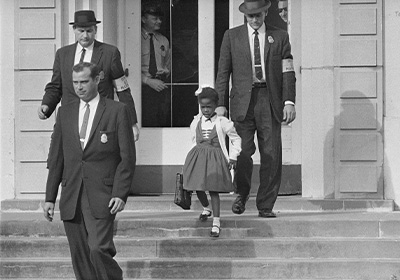Media release from Berry College, written by Public Relations Associate Abigail Dunagan:
Civil rights icon Ruby Bridges, one of the first Black students to integrate an all-white elementary school in 1960, will speak at Berry College on Martin Luther King Jr. Day.
Though Bridges’ experience in school was harrowing due to blatant racism and the targeting of her family, she never once missed a day.
Her lecture will be at 10 a.m. Jan. 20, 2025. Seating is limited and doors open to the public at 9:30 a.m. in the Berry College Chapel. The event is part of the Conson Wilson Lecture Series and is sponsored by GHD Foundation, Berry’s corporate diversity partner. It is free and open to the public.
Bridges was born in 1954, the year that the U.S. Supreme Court ruled school segregation to be unconstitutional in Brown v. Board of Education. On Nov. 14, 1960, she began attending William Frantz Elementary school in New Orleans, single-handedly initiating the de-segregation of public education.
Various art pieces and media have immortalized her story, including Norman Rockwell’s painting “The Problem We All Live With” and the Disney movie “Ruby Bridges.” She is the author of several books including “Dear Ruby, Hear Our Hearts”, released in January 2024.
Bridges currently works as a Civil Rights activist, author and speaker. She established the Ruby Bridges Foundation to provide leadership and training programs to inspire community leaders to embrace diversity. She was inducted into the National Women’s Hall of Fame in March 2024.
Bridges is the recipient of numerous awards, including the NAACP Martin Luther King Award, the Presidential Citizens Medal, and honorary doctorate degrees from Connecticut College, College of New Rochelle, Columbia University Teachers College, and Tulane University.
This lecture also marks the 60th anniversary of Berry College’s integration. A key figure in this transformation was Berry President John R. Bertrand, who cautiously navigated opposition and local tensions, eventually leading the college’s peaceful integration in 1964.
